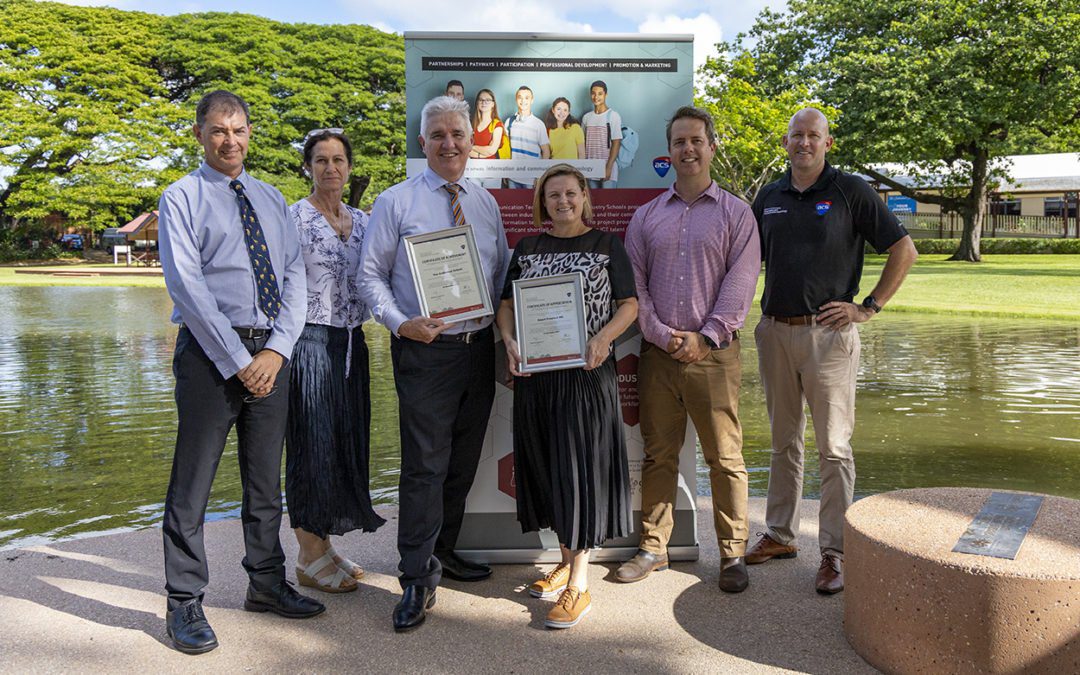
The Cathedral School joins the ICT Gateway to Industry Schools Program (GISP)
The Cathedral School has officially signed with the ACS ‘Gateway to Industry Schools Program’ for 2022. This is an exciting opportunity to help support our students, parents and staff with support for work pathways for students and professional development for staff and students. GISP is an initiative from the Department of Employment, Small Business and Training (DESBT) and ACS.
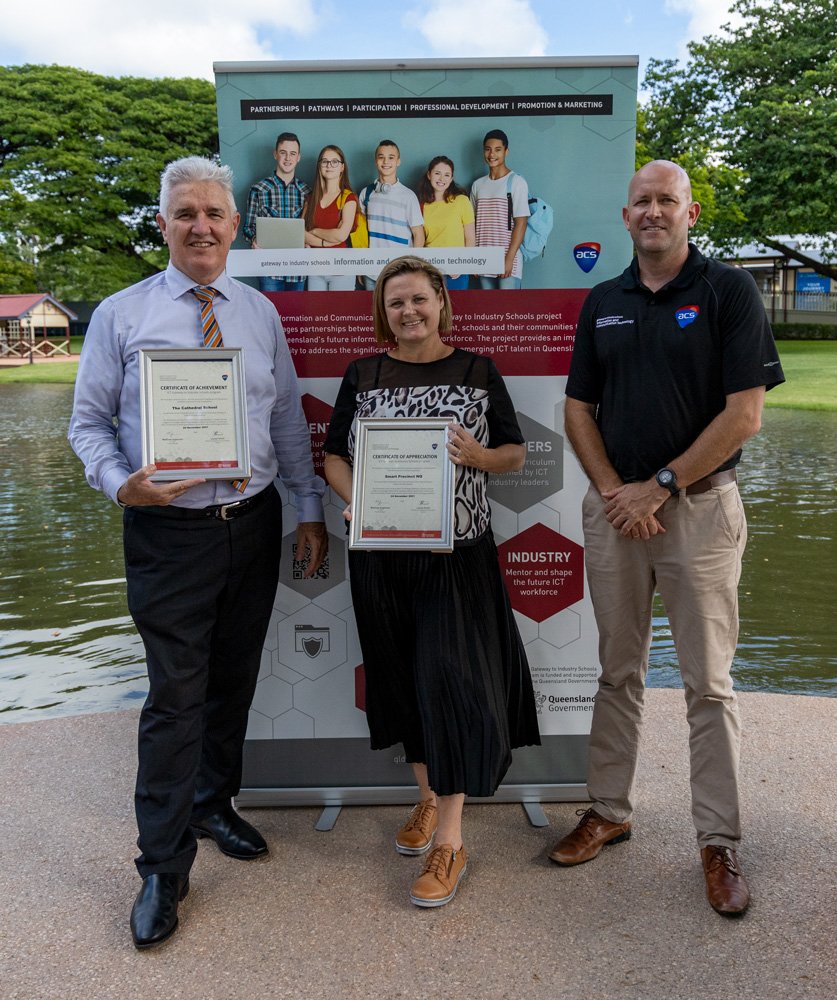
ACS is the professional association representing the ICT sector and profession in Australia. As highlighted by ACS, the aims of ICT GISP are to:
• Promote the ICT Industry to students and parents as an outstanding career choice
• Raise awareness of the hundreds of different and interesting ICT roles within this career choice
• Highlight the different study and training pathways to enable students to prepare for an ICT career
• Connect schools and students with ICT Industry Partners to provide industry experience
• Provide ICT GISP schools with access to teacher training and resources
‘A career in ICT can cater for all types of academic, personal and professional passions. The emerging technologies of the 4th Industrial Revolution, such as 3D printing, Virtual and Augmented Realities, Artificial Intelligence, the Internet of Things, and Robotics promise more possibilities for a career in technology. The most in-demand skillsets from tech employers are communication, Problem-Solving, and Collaboration. There is a career for everyone in the tech world, and it can be flexible, creative, fun, and well-paid.’
– GISP Project Manager, Matthew Jorgensen.
The partnership places The Cathedral School at the forefront of ICT-based P-12 education in North QLD and compliments the development of the school’s new ICT Leadership role headed by Ben Dallimore in 2022. The school is also in the final planning stages before undergoing significant structural developments on campus, featuring a dedicated STEM/ICT educational wing. The wing is scheduled for completion mid-2022.
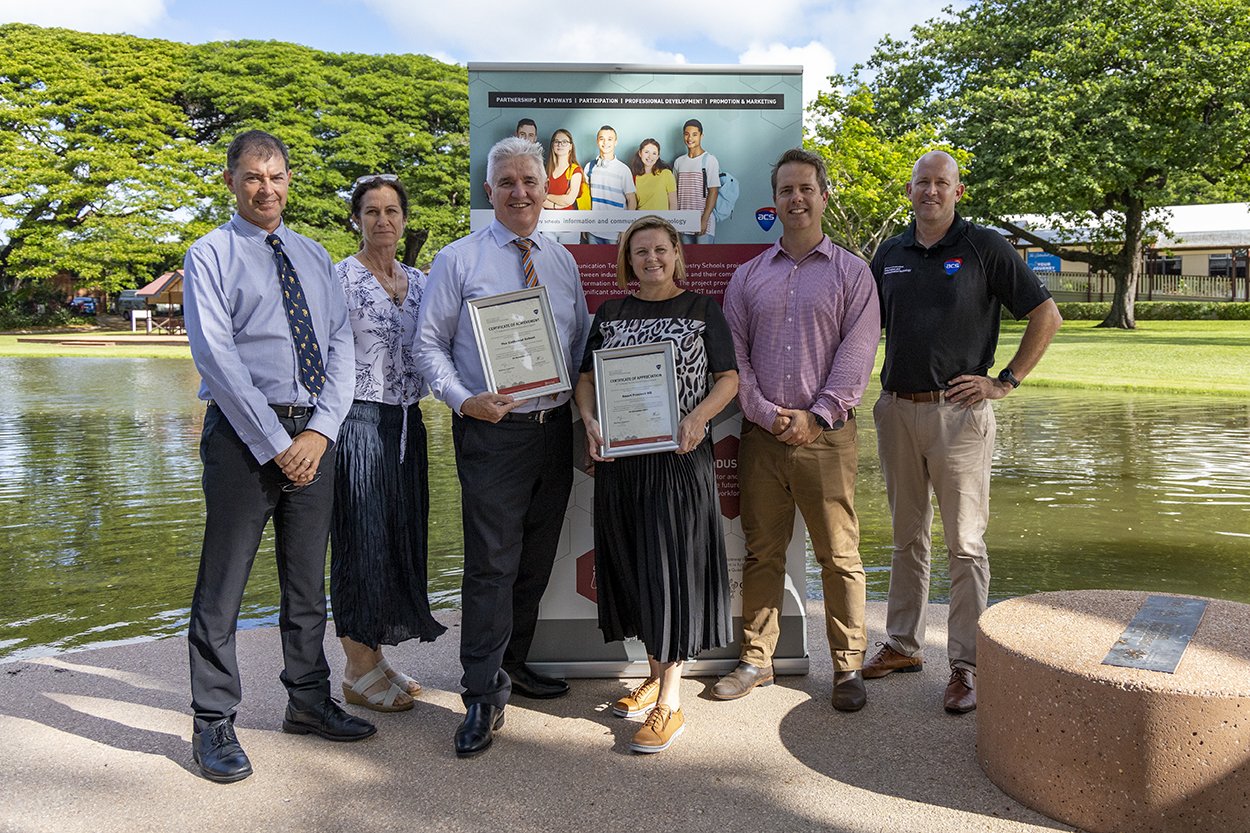
The agreement was signed by Principal Ian Gamack and GISP Project Manager Matthew Jorgensen, with Industry Partner/Head of Smart Precinct NQ, Miranda Mears. Pictured L-R: Andrew Arratoon – Director of Studies, Katrina Wilshire – Pathways Manager & Careers Advisor, Ian Gamack – Principal, Miranda Mears – Head of Smart Precinct NQ, Ben Dallimore – Director of ICT (beginning 2022), and, Matthew Jorgensen – GISP Project Manager.
Find out more about the program here

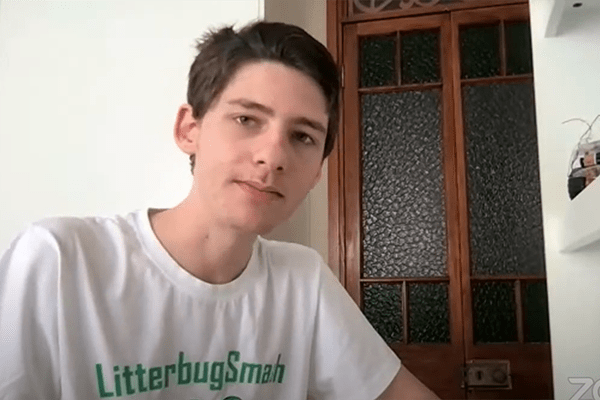
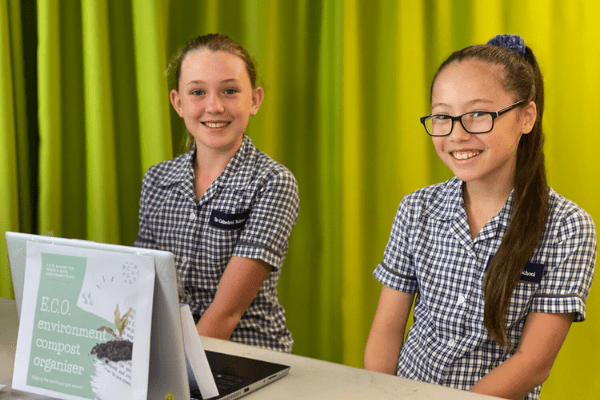
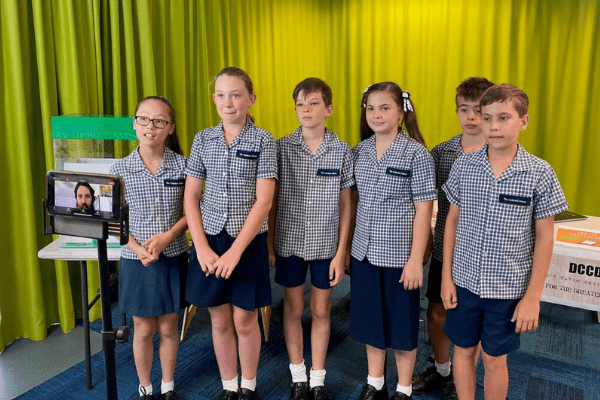 The competition’s alignment with the school curriculum enables students to apply what they learn in their ICT/Digital Technologies classroom to develop a technology related project of their choice. At the judging event, students have the opportunity to present their project to a judging panel of academia, industry partners and ICT professionals. Each project is assessed on the criteria of creativity, uniqueness, quality, level of difficulty and project documentation. Young ICT Explorers.
The competition’s alignment with the school curriculum enables students to apply what they learn in their ICT/Digital Technologies classroom to develop a technology related project of their choice. At the judging event, students have the opportunity to present their project to a judging panel of academia, industry partners and ICT professionals. Each project is assessed on the criteria of creativity, uniqueness, quality, level of difficulty and project documentation. Young ICT Explorers.